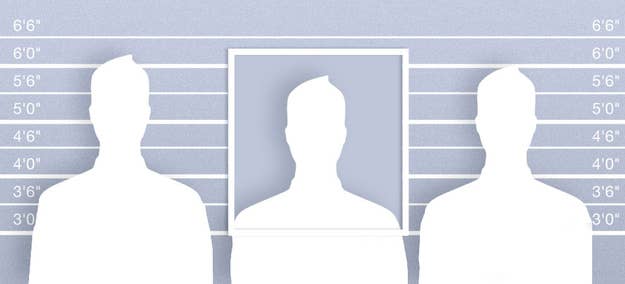
Starting in March, any time one of the 73,000 registered sex offenders in California creates a new username on any website — whether to shop, pay bills, comment on a news article, or just play "Words with Friends" — he will have to notify his local police or sheriff within 24 hours. He (the overwhelming majority are men) will also have to hand over a list of all the usernames he has ever created, on any site. If he doesn’t comply, he could be charged with an automatic felony or misdemeanor, which could land him in jail.
The new requirements are part of a lesser-known section of California’s Proposition 35, also known as the Californians Against Sexual Exploitation Act Initiative, aimed at curtailing the sex traffic industry.
The proposition passed with 81% of the vote last November. The huge margin was no surprise: Who isn’t against exploitation? But critics say the voters may not have fully grasped what they approve — or the slippery slope on which it could be the first step. That’s because the new law legally prohibits — albeit for a small and often legitimately despised population — anonymous online speech and mandates that people have their online persona linked to their real “authentic” self.
If the underlying ethos of a mandatory, uniform online identity sounds familiar, it’s because it’s at a core value of the world’s largest social network. In some ways, Proposition 35 can be seen as the legislation of Facebook’s company policy, which prohibits people from creating anonymous profiles that aren’t based on their real offline name and identity. It’s a highly controversial position, one that rejects the Internet’s tradition as an open forum encouraging free anonymous speech. But as more and more people sign into other sites through Facebook, having one unified online identity — and seeing your full name and Facebook photograph automatically jump up on websites — is becoming the norm.
So perhaps it’s not surprising that the main backer of Proposition 35 is Chris Kelly, former chief privacy officer at Facebook. He donated $2.36 million of the total $3.7 million raised by the campaign and helped to draft the proposition’s language.
“The Constitution of course protects a limited right to speak anonymously in all forms, including the Internet,” Kelly says. “Convicted sex offenders are restricted in their other anonymous associations offline. … Proposition 35 follows many other state laws, and federal law, in assuring there isn't an Internet loophole anymore.”
Kelly has long been involved in fighting online sex trafficking. In 2007, after Facebook was subpoenaed by New York State over its lack of response to sexual predator complaints, Kelly worked with then-Governor Cuomo to pass the country’s first mandatory ban on sexual offenders from social networking sites. He has since acted as a proponent for multiple states to require sex offenders to report their online identifiers. And online safety and security was a part of his platform during Kelly’s unsuccessful bid for California attorney general in 2010. During that campaign, Kelly came under fire for Facebook’s record of user privacy and safety, including the controversial Beacon Project launched under his watch. In a surprising turn, during his campaign, Kelly criticized many of Facebook’s privacy policies.
Kelly hopes the kind of online safety program he set up at Facebook will be applied, by law, elsewhere on the Internet.
“Proposition 35 allows sites to use this information from law enforcement when made available to build a safer Internet to dissuade the use of Internet for sex crimes,” he explains. “You aren’t looking at every activity or monitoring every situation. It just creates a database to use for investigative purposes when there is a specific allegation,” Kelly says. “It doesn’t bar them from activity.”

Opponents of the law say that it violates freedom of speech under the First Amendment.
On the day after the election, the American Civil Liberties Union and the Electronic Frontier Foundation filed a joint federal class-action lawsuit, arguing that the law restricts registered offenders’ First Amendment rights by infringing on their right to anonymous speech, requiring them to reveal membership in online groups, including those related to political reform, and placing an undue burden on their speech.
In response to the ACLU and the EFF suit, a Northern California U.S. District Judge granted a temporary restraining order until court hearing later this month. If deemed constitutional, the law will go into effect March 20.
“There are legitimate goals, but this law sweeps so broadly, in terms of the types of speech and the people covered,” Michael Risher, an ACLU attorney working on the case, told me. “It is one thing to give the police your home address, which they can find out for any one of us. It’s another thing to tell them your screen name for logging onto a discussion group about a private issue, like sexual orientation, drug use, or political views,” Risher says. “Our founding fathers wrote the Federalist Papers under pseudonyms. Anonymous speech is an established constitutional right.”
On Nov. 17, Kelly petitioned the court to be included, alongside the state’s attorney general, as a defendant of Proposition 35 in the case filed by the ACLU and the EFF. It’s a move not uncommon in California in cases regarding propositions, but one that demonstrates Kelly’s dedication to the cause. Three days later he also filed a challenge to the plaintiffs’ request for anonymity in the courtroom (as John Doe and Jack Roe). Kelly argues that as registered sex offenders, they gave up their right to privacy in the public record. Moreover, he points to their request as evidence that even the plaintiffs admit there is no difference between their online and offline personas. As argued in the challenge, the plaintiffs see “the privacy interests in their identities and Internet monikers are inextricably interlinked.”
Critics of Kelly’s former employer have long argued that curtailment of online privacy and speech will be hard to limit.
“It will have a chilling effect. If there is a prospect that you are being monitored, you’ll be less inclined to speak,” says Hanni Fakhoury, an Electronic Frontier Foundation attorney who helped file the case against Proposition 35. “It is not just registrants’ speech rights that are affected, but people within the circle of proximity. If law enforcement is looking at what the registrant says, then their attention will be drawn to others on the same sites.”
If you’re on a political forum — say, one criticizing the cops — and there’s a registrant on there, you’re being monitored. Plus, hundreds of people could have the same generic username as a registered offender. If an offender shares an Internet provider, or even a Netflix account, with their family or roommates, those people will be subject to monitoring as well. And vice versa: The family’s activity could get the registered offender in trouble.
“The trajectory of this kind of initiative starts with people convicted of serious sex offenses. They are easy targets and some of them pose serious danger,” Risher says. “It quickly expands to many more people.” He draws comparisons to a “strikingly similar” current Supreme Court case he is also working on, about DNA collection, which was originally limited to serious sex offenders and murderers but has now expanded to anyone who has been arrested.
“We will have the same problem if we don’t nip it in the bud,” adds Fakhoury.
Fakhoury predicts that law enforcement requesting private companies to flag suspicious activity by certain users will be “happening on steroids.” While there is no talk of listing Internet usernames in the public registry, the law doesn’t place any restrictions on how law enforcement can use the information. In a 2009 survey by the California State Sex Offender Management Board, 39% of responding law enforcement said that they “proactively” released information about sex offenders to the public, without any evidence that the offender had engaged in any kind of subsequent criminal activity.

“This is a gross invasion of privacy,” commented a registered sex offender under the handle “Tired of hiding” on the website of California Reform Sex Offender Laws, an organization that helps accused or convicted sex offenders navigate legal and policy issues. “The Internet is no longer a ‘luxury’ but a necessity of modern life. Having all of the personal and private information in the hands of the government is a violation of constitutional rights and makes living impossible in our modern society.”
As it stands, the new requirement applies to a significant number of people. The list of over 73,000 California registered sex offenders doesn’t just include serious criminals. People guilty of minor infractions are also listed, like one guy who dropped his pants at another driver in a fit of road rage, and someone who accepted what he thought was a solicitation from someone in a neighboring booth at a peep show. (High school dudes: Think twice before texting that sexy-time photo of your sophomore date on prom night.)
Many police departments are confused about the requirements of Proposition 35, as are the sex offenders themselves. When registrants tried to hand over their information to departments including those in San Diego, San Jose, and Glendale, the officers said they didn’t know about the requirements.
“Do I smell a logistical nightmare?” posted “Joe” on the website of California Reform Sex Offender Laws. Other commenters said they were scared they would be imprisoned for not filing information but didn’t understand how they were supposed to comply. (Do you have to send a registered letter? E-mail? Is there a form? Or do you just scribble something on a piece of paper? What determines the 24-hour period? USPS stamp? Personal appearance?)
“The ambiguity of everything is just ridiculous. We can’t even get official word of what EXACTLY is required and when,” posted “J.”
Some were even under the false impression that they had to hand over passwords. All were confused as to why they were being included in legislation about sex trafficking.
“Now they try to sneak in a new bill on another bill, human trafficking, of which I have nothing to do with,” posts “scott p,” a broadcast engineer who was convicted 28 years ago for a crime he says he didn’t commit. “[It’s] adding more restrictive laws to those who have already paid their price to society.”
“As a society, we like allowing law enforcement to collect our data,” says Fakhoury. “It is time to say, 'Enough.'”
